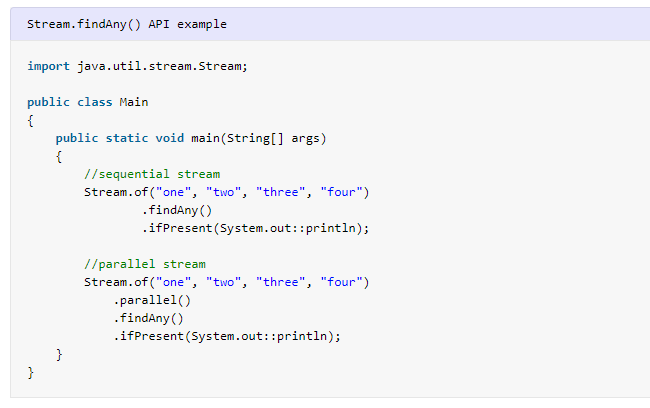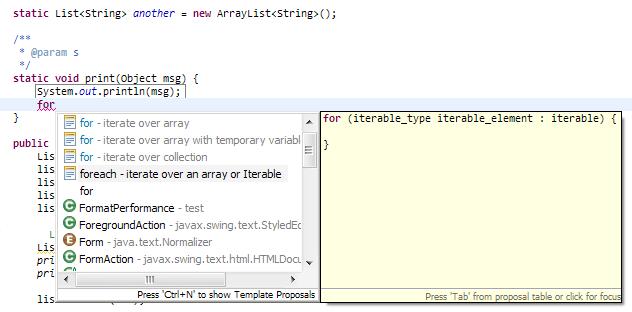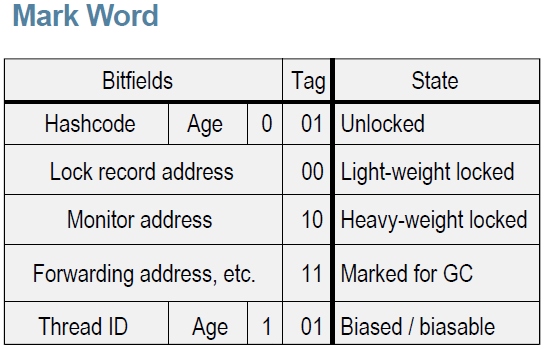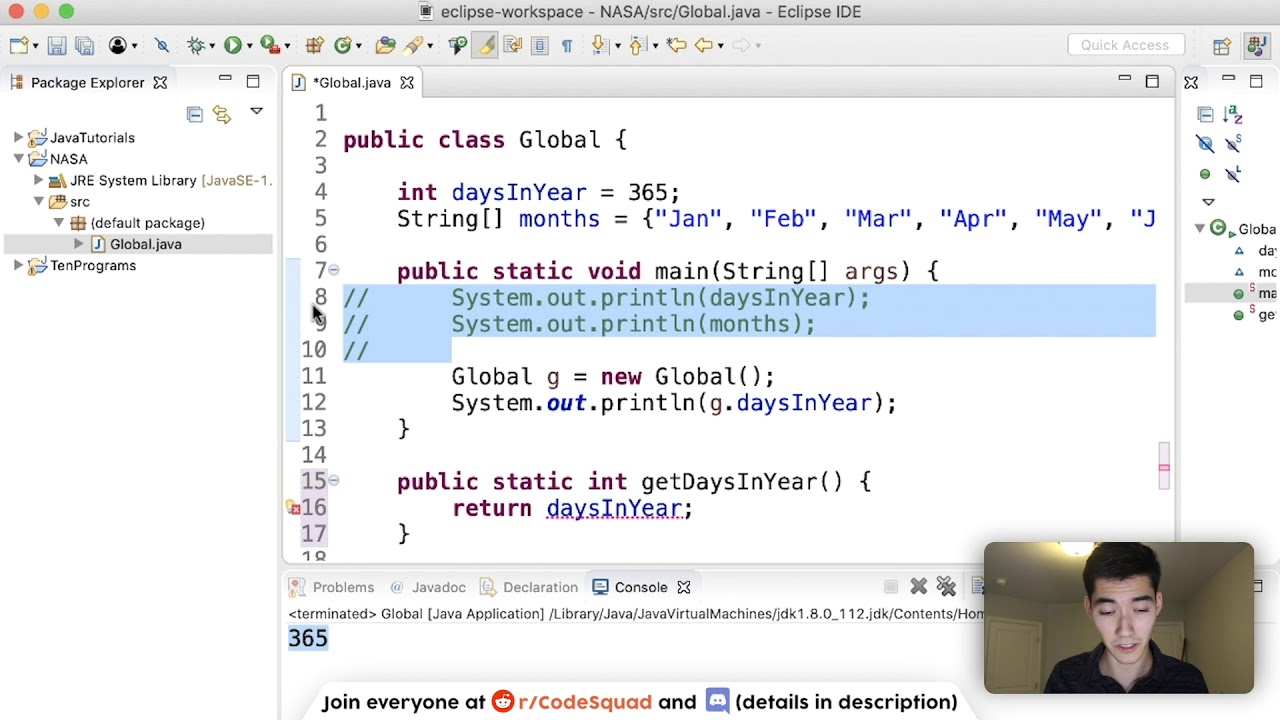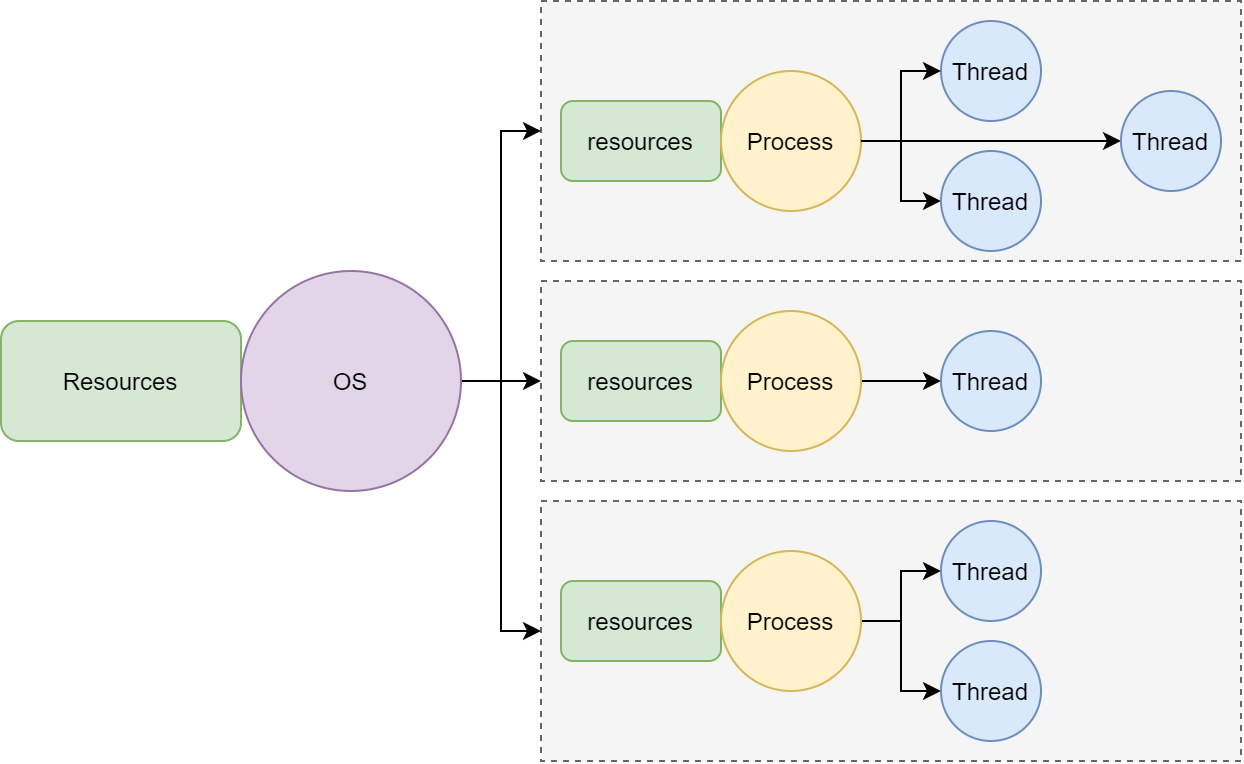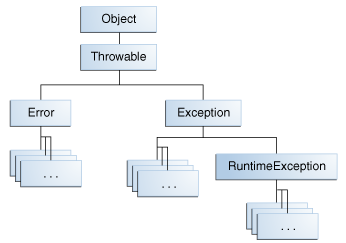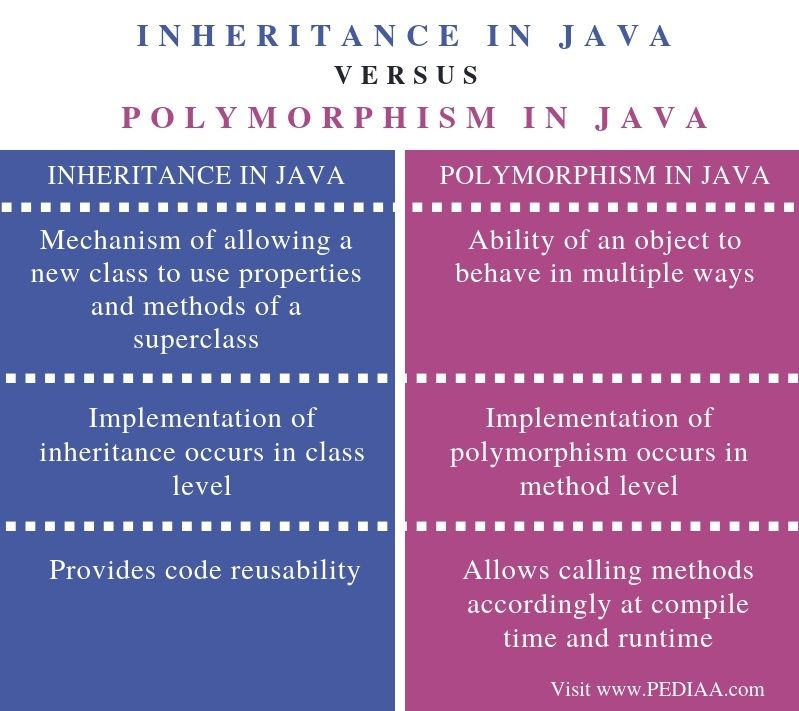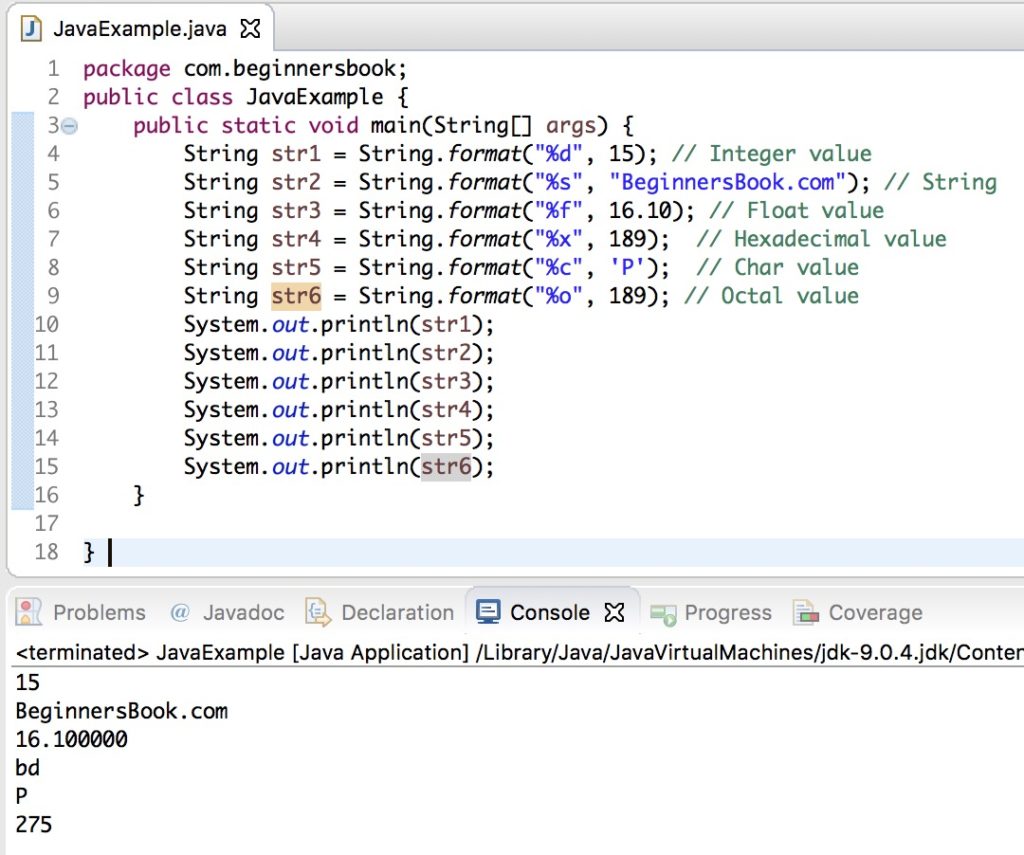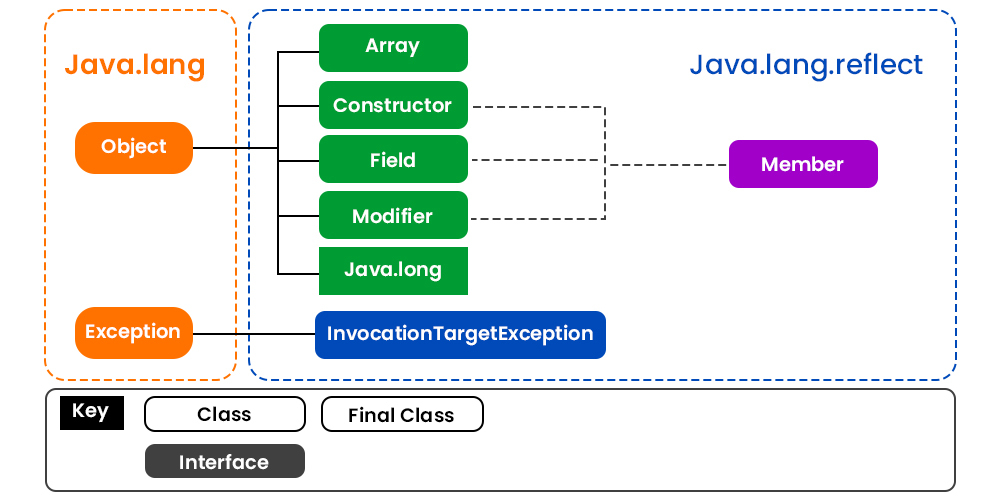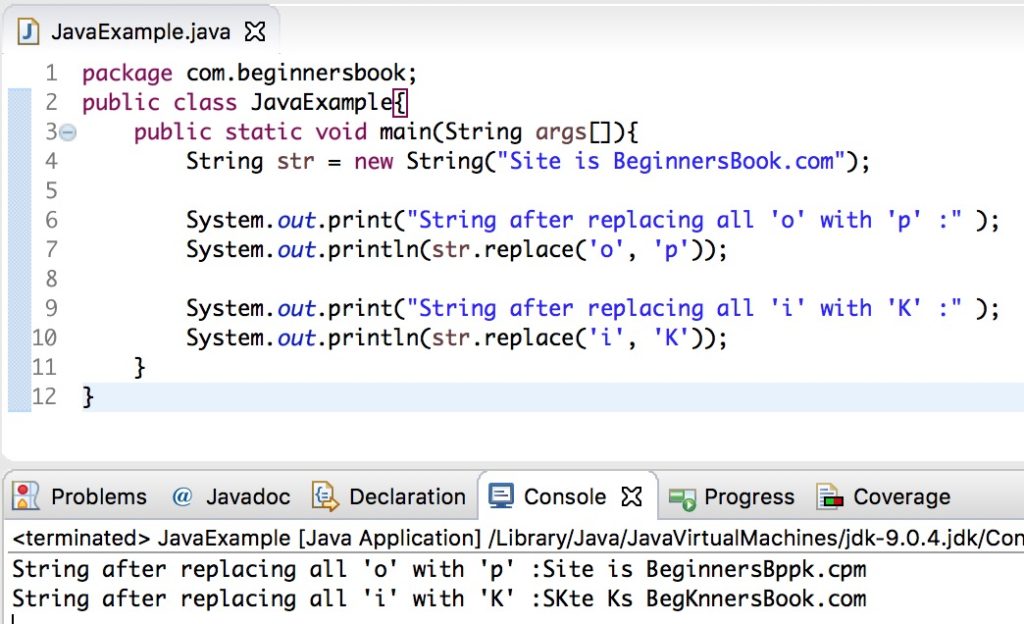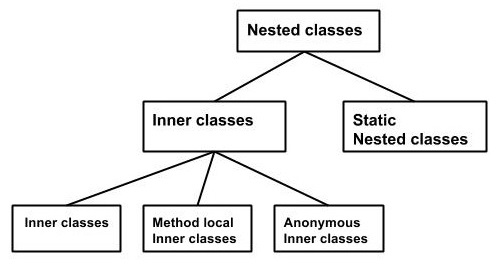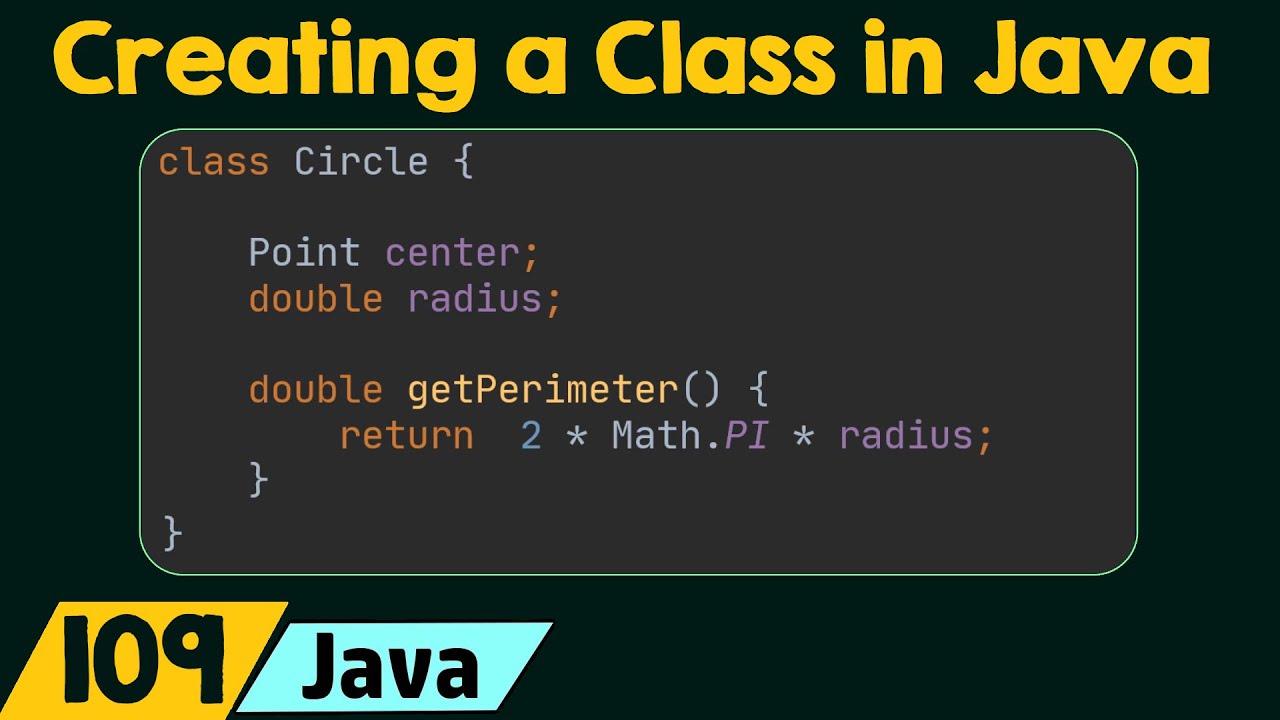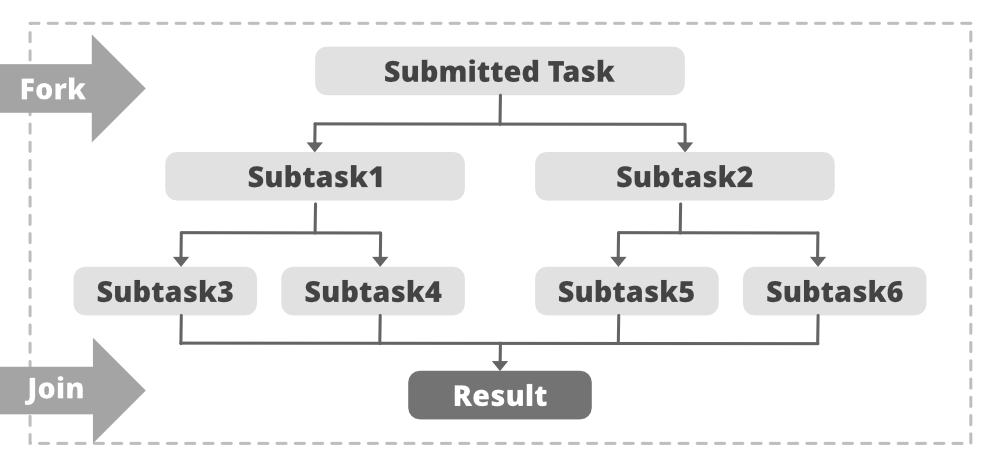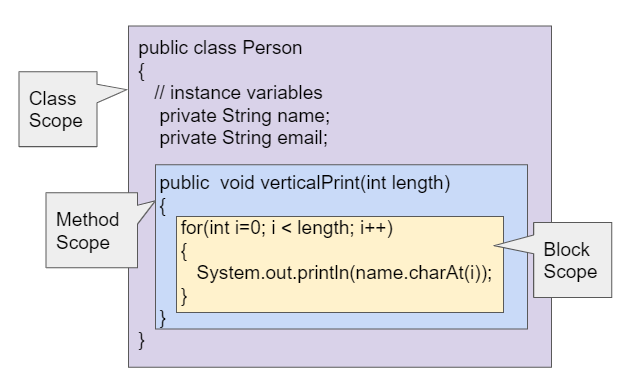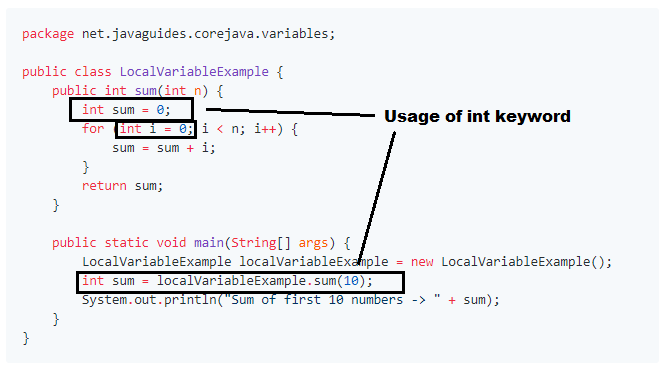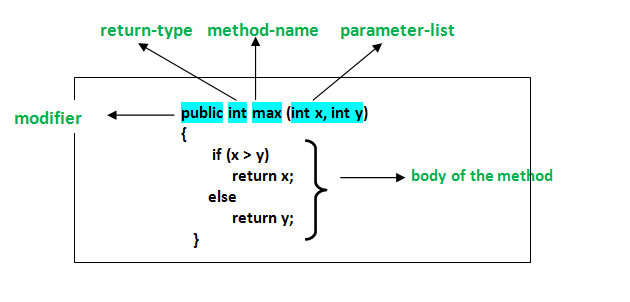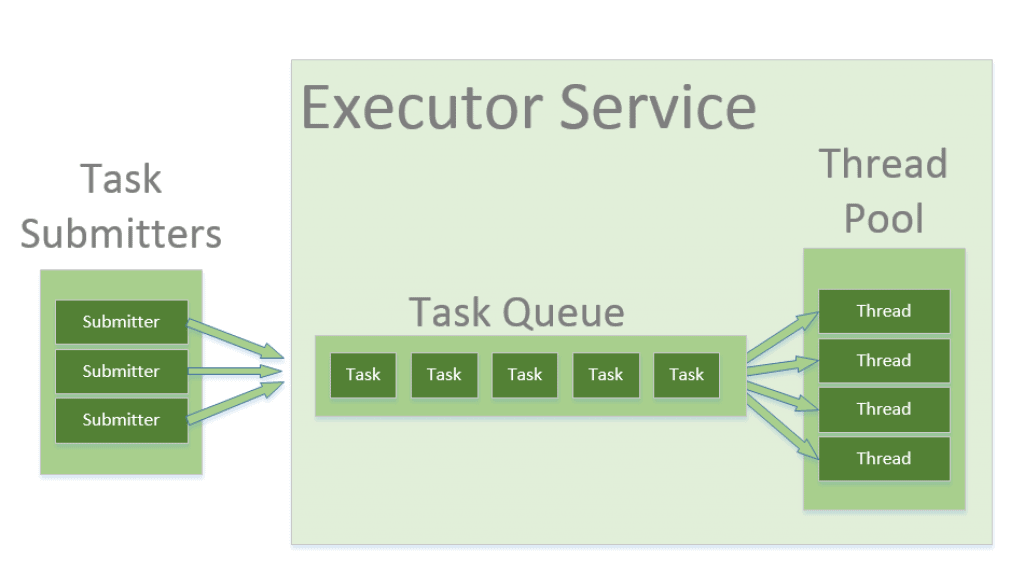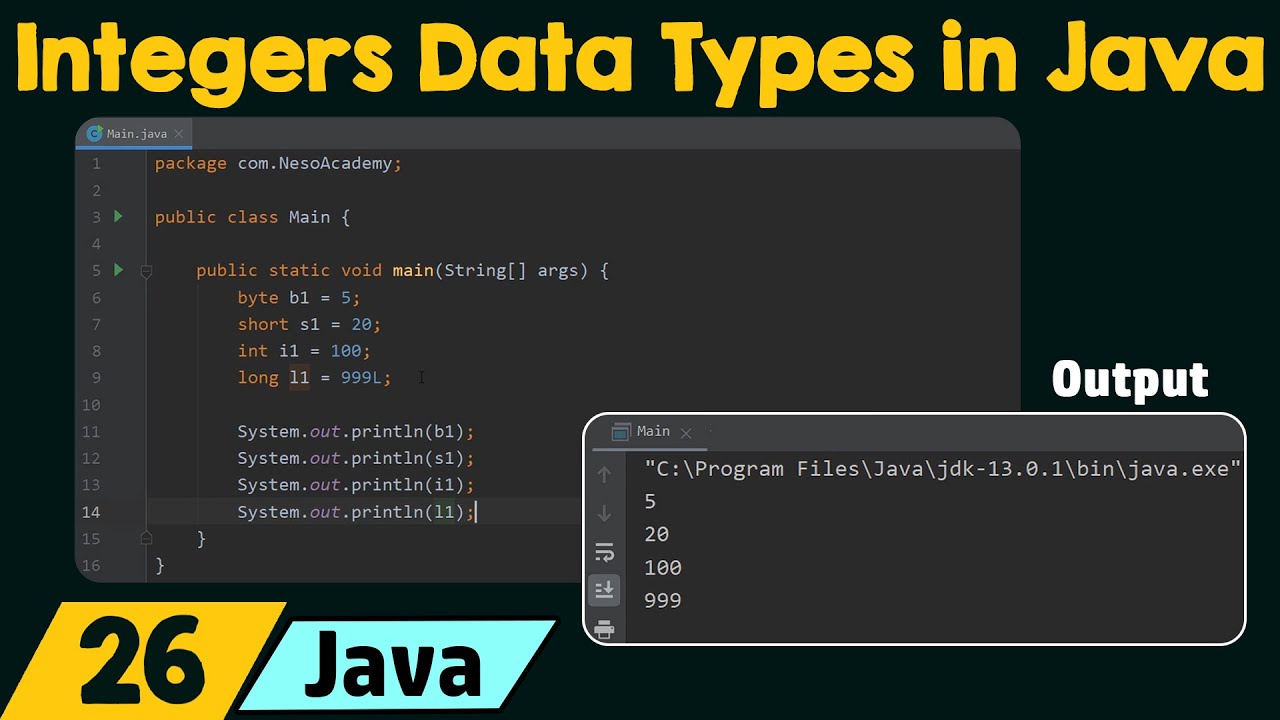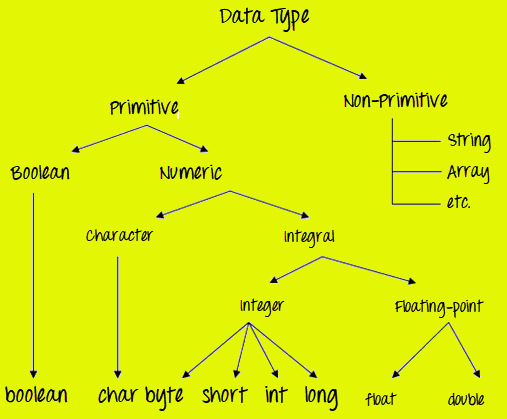Java init method vs constructor
Java init method vs constructor
The age-old debate!
In Java, the terms "init" and "constructor" are often used interchangeably, but they have distinct meanings.
Constructor:
A constructor is a special type of method that's called when an object of a class is created. It's responsible for initializing the object's state by setting its instance variables to specific values. Constructors are denoted by the same name as the class, without any return type (not even void). When you create an object using the new keyword, Java automatically calls the constructor to set up the object.
For example:
public class Person {
private String name;
public Person(String name) {
this.name = name;
}
}
In this case, when you do Person person = new Person("John");, the constructor is called with "John" as an argument, and it sets the name variable to that value.
init() Method:
An init() method (also known as an initialization method) is a regular method that's used to perform some setup or initialization tasks. It's not related to object creation like constructors are.
The main difference between init() and constructor is that constructors are called automatically during object creation, while init() methods need to be explicitly called.
Here's an example:
public class MyObject {
private int value;
public void init(int initialValue) {
this.value = initialValue;
}
}
To use this method, you'd do something like:
MyObject myObj = new MyObject();
myObj.init(42); // set the value to 42
In this case, init() is a separate method that's called explicitly to perform some initialization tasks.
Key differences:
Automated vs explicit: Constructors are automatically called during object creation, whileinit() methods need to be explicitly called. Purpose: Constructors aim to initialize the object's state, whereas init() methods focus on performing specific setup or initialization tasks. Return type: Constructors have no return type (not even void), while init() methods typically return a value or don't return at all.
In summary:
Use constructors to initialize an object's state when it's created. Useinit() methods for explicit setup or initialization tasks, which may occur after the object has already been created.Class initialization in Java
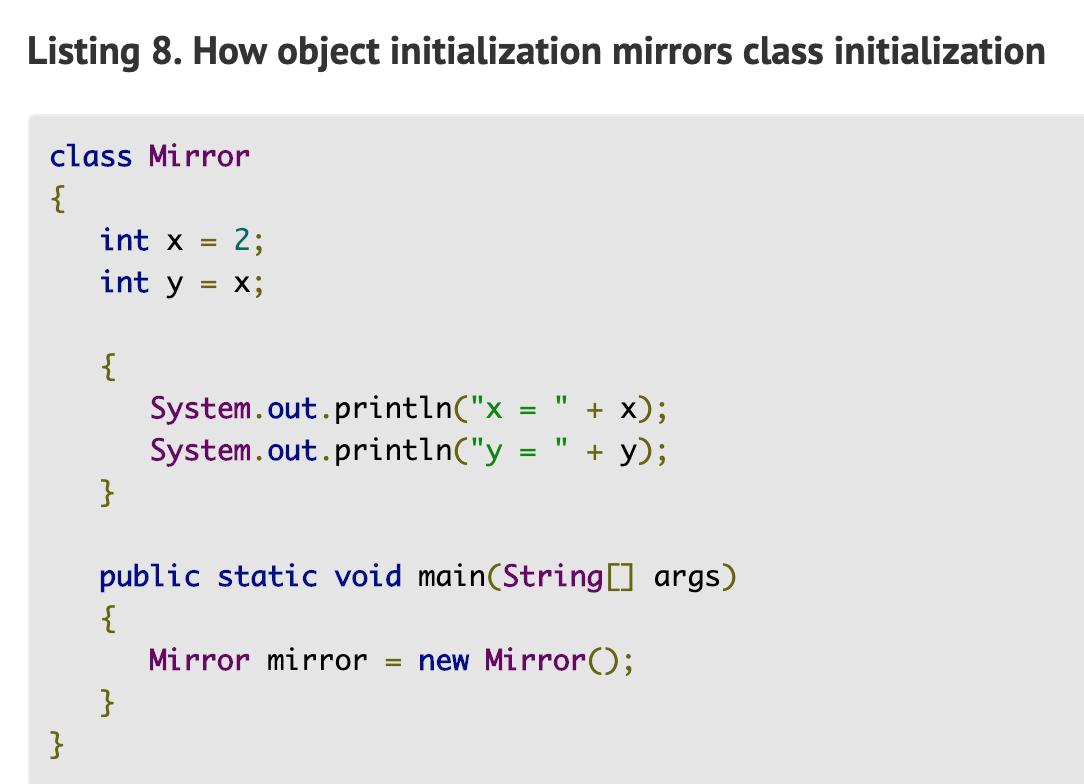
Class Initialization in Java:
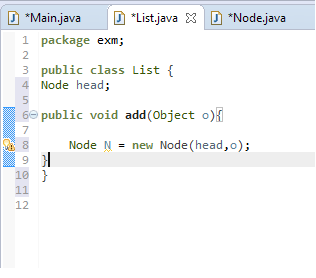
In object-oriented programming (OOP), class initialization refers to the process of creating an instance of a class, which is also known as instantiating or creating an object. This process involves allocating memory for the object, setting its initial state, and executing any necessary constructors.
When a class is initialized in Java, several things happen:
Memory Allocation: The JVM (Java Virtual Machine) allocates memory for the object, which includes the memory required to store its instance variables, as well as any overhead memory needed by the JVM. Initialization of Instance Variables: The values of the instance variables (non-static fields) are initialized to their default values according to their data types. For example, integers are initialized to 0, boolean values are set to false, and objects are set to null. Execution of Constructors: If a constructor is defined for the class, it is executed with the object as its implicit parameter. The constructor initializes the state of the object by setting its instance variables to specific values. Setting of Static Variables: If static variables (static fields) are present in the class, they are initialized only once when the class is loaded into memory.There are several aspects to consider when initializing a class in Java:
Static Initialization Blocks: These are blocks of code that are executed only once when the class is initialized. They can be used to perform initialization tasks that require access to static variables. Instance Initialization Blocks: Similar to static initialization blocks, these are blocks of code that are executed each time an instance of the class is created. They can be used to perform initialization tasks that require access to instance variables. Constructors: As mentioned earlier, constructors are special methods that initialize the state of an object when it is created.Here's a simple example of how to use static and instance initialization blocks in Java:
public class MyClass {
static {
System.out.println("Static block executed");
}
{
System.out.println("Instance block executed");
}
public MyClass() {
System.out.println("Constructor executed");
}
}
To create an object of the MyClass class, you would use:
MyClass obj = new MyClass();
This would execute the constructor, instance initialization block, and static initialization block in that order.
